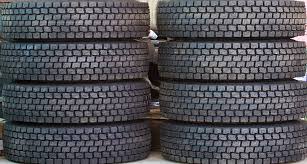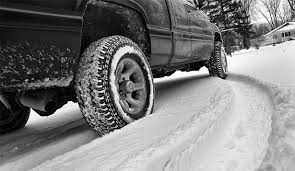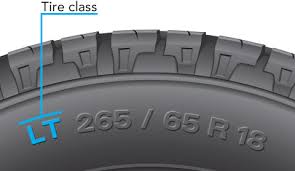What is the Difference Between SUV Tires and Truck Tires?
Learn about the differences between SUV tires and truck tires.
Once you know how to choose a SUV tire, you’re probably wondering about the difference between SUV tires and truck tires. While it may seem like a gray area, you’ll be surprised there are quite a few differences between the two (and tires for other vehicles). When you’re shopping for tires online, you’ll find a lot of websites compare light truck and passenger tires, but not SUV tires and truck tires.
SUV Tires vs. Truck Tires
What is the Difference Between SUV Tires and Truck Tires?
Truck tires are generally more aggressive, have a taller sidewall, and are rated to carry heavier loads than SUV tires. With that being said, a lot of truck tires are offered in SUV sizes, and the line that divides truck tires from SUV tires in terms of tire size is pretty blurry. Some SUVs use a “truck size” tire, and some newer trucks take tires that are more commonly an SUV size.
The main difference between a SUV tire and a truck tire is the style of the tire and what its primary benefits are. For example, the Cooper Discoverer CTS is marketed as a long-lasting tire with a comfortable, quiet ride. Compare that to the Discoverer HT or AT3, which are marketed for their traction.

Light Truck Tires vs. Passenger Truck Tires
You’ll also want to know the difference between light truck (LT) tires and passenger truck tires. SUVs almost never take an LT size, but trucks can take both. LT tires can handle a heavier load than passenger tires. Light truck tires are typically more durable, because they’re made with a thicker rubber compound than other tires. However, they usually cost more than passenger truck tires.
Passenger truck tires can provide a smoother ride than LT tires. They’re also less expensive, and are easier to find. However, they don’t have the ability to carry heavy loads. If you want to do any towing with your truck, you’ll want LT tires. Passenger tires also have thinner sidewalls, making them less durable than LT tires.

Choosing the Right Tires for Your Lifted Truck or Lifted Jeep
When looking for the right tires to fit your lifted truck, there are many choices out there that offer the proper traction needed. Doing the proper research can help you choose the brand name and terrain type you may want in a tire. The tires come in many different standard and metric sizes. Make sure you check the size lift you have on your truck, so you know the dimension of tire needed, and you don’t get tires to big or small.
Light Duty Tires
These tires are typically like passenger car tires with a larger load capacity, enabling them to be used on trucks. Light truck tires offer a very smooth ride, with tread design that is made to push away water when it rains, and offer higher mileage tread wear.
All Terrain Tires
Tires in this class offer the best of both worlds when looking to add them to your lifted truck. The tires have a slightly more aggressive tread pattern and depth compared to light duty truck tires. This enables the tires to conquer off road scenarios where the driver might end up in the dirt, mud, and sand. The tires will give your lifted truck an edge whether off the beaten path or back on the highway. The ride is smoother than a mud tire but still has a rougher ride quality.

Mud Terrain Tires
Mud tires are chosen more than any other class tire when people are considering to add that aggressive look to their lifted truck. The tread pattern on these tires are a lot deeper, and have huge lugs of rubber for pushing through the mud and water. The gaps in the tread allow mud to clean out, so if your lifted truck is deep in the mud, you can drive through without the mud caking on the tires. The good always has some bad as tread wear is typically a lot worse, and these tires have increased road noise because of the tread pattern.
As you can see, choosing the right tire for your lifted truck can be quite a decision maker. With all the tire manufactures out there and different lift kits available for your ride, doing the proper research to find out what type of tire you need is valuable. Always think about what type of driving you may do, if you are the avid outdoors man you may want to invest in an all-terrain tire or mud tire, because you will likely traverse through areas you will need the extra deep tread. If you plan on staying on the highway, then a light duty truck tire could be in your future. Whatever tire you choose for your lifted truck, just know they are out there and ready to be mounted to your new ride.
Winter Driving in a Truck
With snow, sleet and ice, the roads in winter can be dangerous. Winter driving mistakes can be made. Some tips to help you navigate your way home safely in your truck:
- Brake and accelerate slowly.
- Keep a firm grip on the steering wheel.
- Give yourself extra space between vehicles.
- If you hit ice, turn the wheel the direction you’re sliding.
Remember, when roads are icy or snowed-over, you can’t maneuver as if it’s a dry, sunny day. Be cautious and aware of what’s around you, including other drivers.